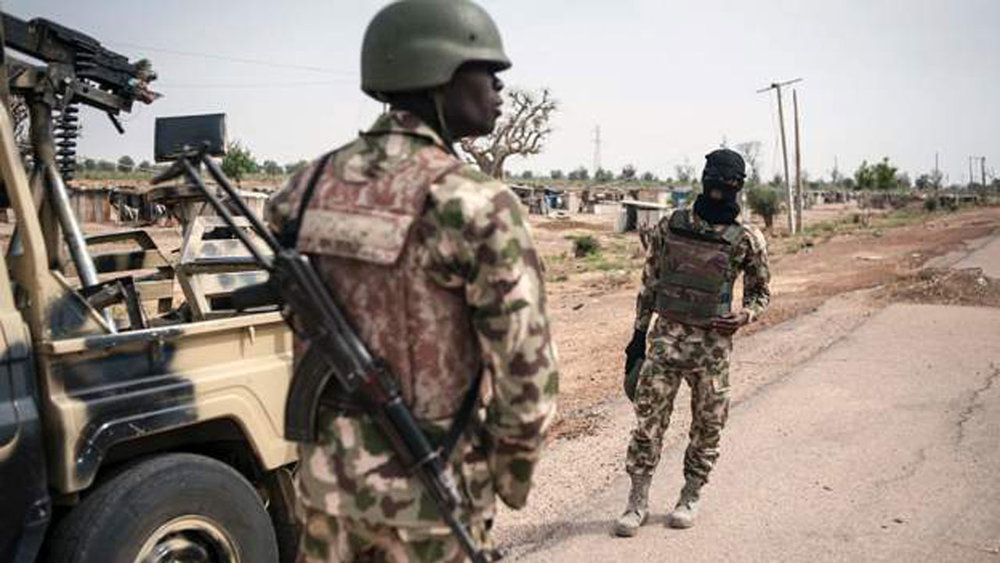Nigeria needs the world’s assistance in responding to the Boko Haram crisis

Some 250 delegates have gathered in the Norwegian capital Oslo on Friday to draw attention to the world’s forgotten humanitarian crisis — that of northeast Nigeria and the Lake Chad region, where Boko Haram once dominated and have left destruction in their wake
Beleaguered region
The humanitarian crisis in northeast Nigeria is one of the most underreported disasters in the world — only recently have people turned their attentions to this beleaguered region. Over the last seven years, Boko Haram, one of the most brutal terrorist groups the world has ever seen, has caused untold loss of life and liberty across northeastern Nigeria and parts of Niger, Chad and Cameroon in and around the Lake Chad Region.
Governor Kashim Shettima of Borno State, the epicenter of the insurgency, estimates that the destruction caused by Boko Haram in Borno alone amounts to about $6 billion. At the height of the insurgency, Boko Haram sowed its destruction across the entire northern Nigeria, hitting targets as far away as the country’s capital Abuja, some 430 miles from Maiduguri, the Borno state capital.
The Nigerian government has been unwavering in its determination to bring a speedy resolution to the insurgency. President Muhammadu Buhari has consistently made it clear, as a presidential candidate in early 2015 and as elected president since May 2015, that one of his foremost priorities is defeating the terrorists. And the Nigerian military has relentlessly taken the battle to the enemy’s strongholds, routing it, reclaiming lost territory, and liberating tens of thousands of people. Now well on the back foot, Boko Haram has mostly resorted to suicide bombings on mosques and motor-parks and other soft targets.
A new set of challenges
The admirable successes of the military have produced a new set of challenges: how to deal with the flood of civilians uprooted and traumatized by the insurgency. In Nigeria alone, 26 million people have been affected, including host communities where refuge has been sought and given. With voluntary returns to date, the current number of recorded internally displaced persons (IDPs) stands at 1.9 million, only a fraction of the total number affected by the humanitarian crisis. Clearly, it would be a mistake to talk of this as an IDP or refugee crisis alone. Relief efforts are currently, understandably, focusing on those in greatest need, but the impact of the insurgency and the ensuing humanitarian crisis is much more widely felt.
For its part, the Nigerian government is making budgetary provision through its ministries, departments and agencies, for just over half of the 14 million in need in the six most affected states in 2017. The goal is to deliver life-saving assistance and to advance the recovery and rebuilding process. But these are difficult financial times for the country.
Nigeria hopes world powers will supplement the government's efforts to fix the destruction Boko Haram left behind.
We cannot do this alone. Meeting the needs as set out in the 2017 Humanitarian Response Plan for Nigeria will cost $1.054 billion and currently, less than 10 percent of the plan has been funded, thus highlighting the need for rigorous resource mobilization in order to meet targets. We anticipate that this pledging conference will go some way to closing the funding gap.
We are optimistic that this conference, apart from helping closing the funding gap, will also provide a platform to forge the enduring friendships and partnerships required to navigate the challenging months and years ahead.
The highlight of the conference will be the increased political will and attention, as well as pledges by the governments and donor agencies attending — pledges that, when redeemed, will augment the efforts of the Nigerian government. When the throng of foreign ministers, diplomats, donors, activists and civil society organizations make their way from Oslo back to their various bases this weekend, it will be with the firm belief that we have succeeded in taking the first bold step in pulling the world’s forgotten crisis out of the shadows. And that by doing so we are preventing a protracted crisis, and helping avert a nightmare scenario that would make Boko Haram’s brutality seem insignificant in comparison.
(Source: Newsweek)
Leave a Comment